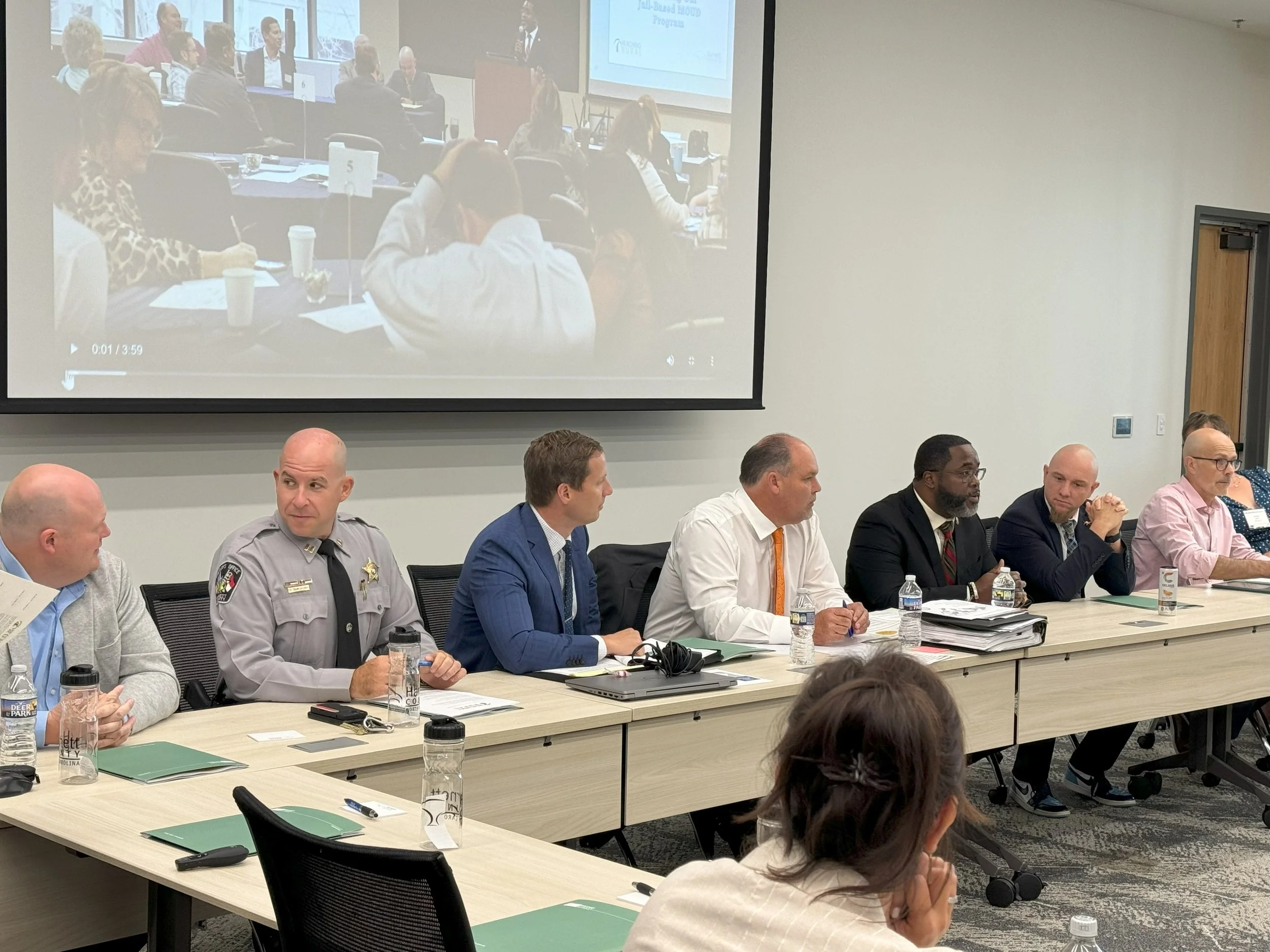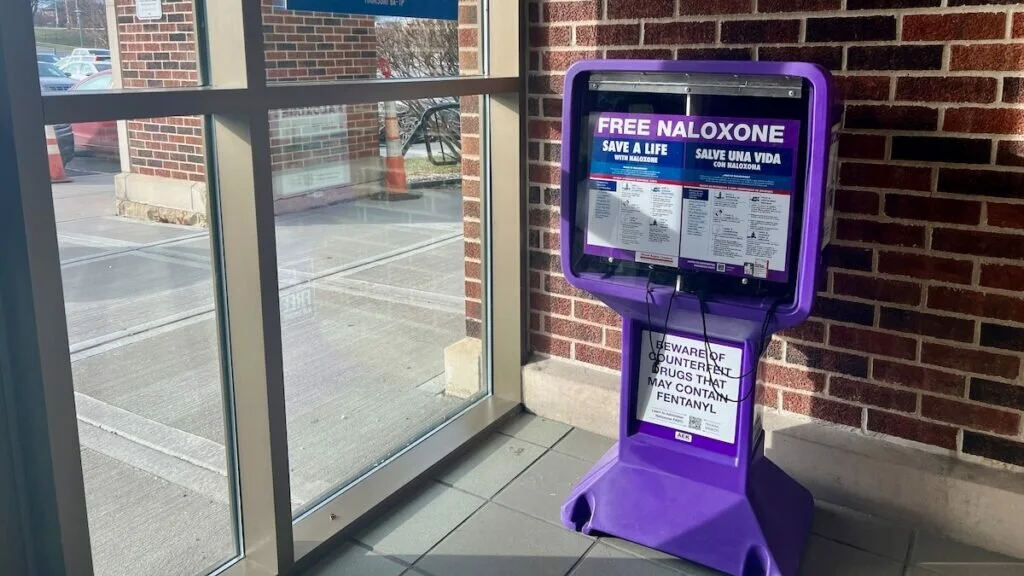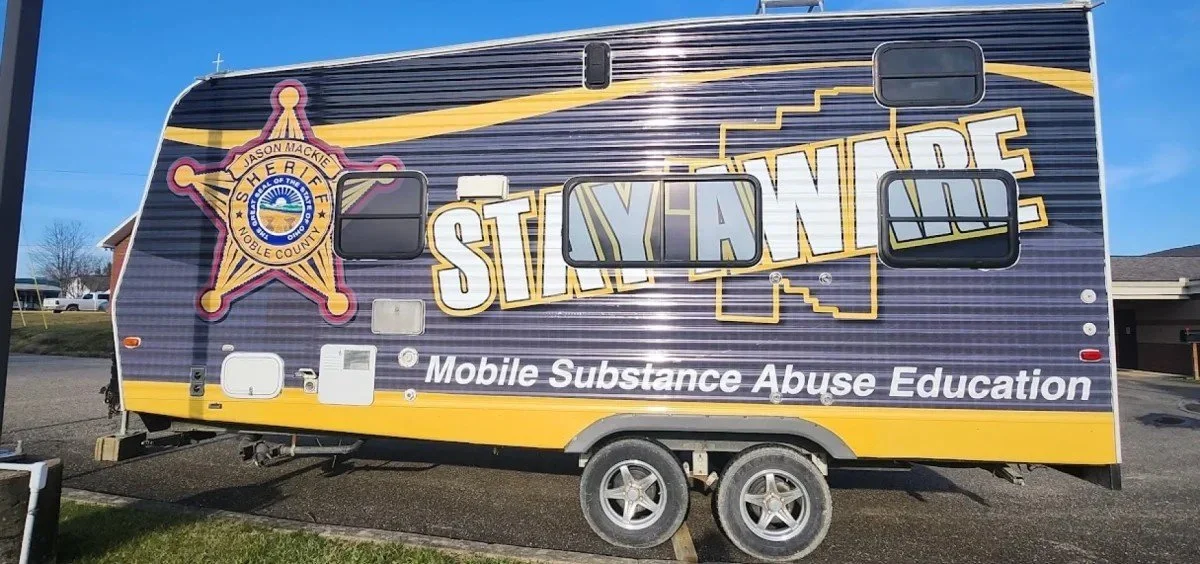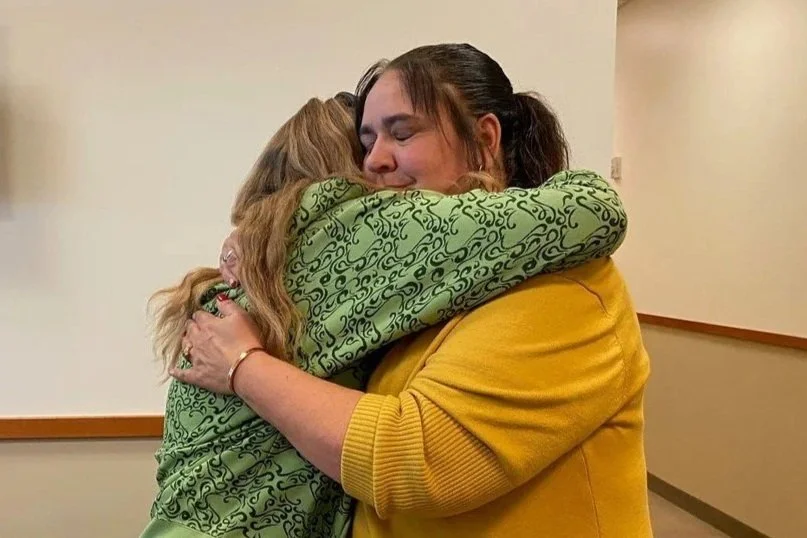Resources for Rural Communities
Use the filters below to search by resource topic, type, and audience.
How Rural Communities Are Using EMS to Help Solve the Opioid Crisis
California is one of just five states in which the rate of death from drug overdoses is higher in rural areas than urban ones. In the California Health Report, PHI’s Bridge Center is highlighted for its program, which trains EMS units to administer medications that help withdrawal symptoms, helping to reach the state’s rural populations with critical care.
How a New Program is Sparking Change in Ohio Jails
A couple of years ago, the Sandusky County Jail was the first in Ohio to launch a program called IGNITE, which stands for Inmate Growth Naturally and Intentionally through Education. IGNITE started in 2020 at a county jail in Flint, Michigan. The sheriff there wanted to shift the jail’s culture and reduce the rate of people returning to jail. So they started offering courses to teach skills like financial literacy and parenting. Since then, the National Sheriff’s Association has adopted the program and has spread to more than 25 jails nationwide.
Non-Profits Partner to Bring Mental Health for Children and Caregivers in Rural Communities
The California-based La Maida Project announced this month that it is working with Save the Children to build and implement a training network that will support rural early- childhood educators and their youngest learners. By taking an ecological approach to mental health, the partnership seeks to help both the children and their caregivers.
A New Treatment Study is Showing Promise for Rural Mainers with Opioid Use Disorder
With opioid addiction continuing to affect thousands of residents in Maine each year, Seaport Community Health Center (SCHC) in Belfast, a rural area of Maine, is initiating a trial for a new treatment that may significantly enhance access and consistency for individuals struggling with opioid use disorder. SCHC is among several sites involved in a nationwide study assessing the efficacy of Brixadi, an injectable medication designed to treat opioid addiction. Unlike traditional medications such as Suboxone, which require daily administration under the tongue, Brixadi is administered monthly.
WSU Researchers Investigate Rising Rural Jail Rates in Washington
This article discusses research conducted by a team at Washington State University on incarceration rates in rural county jails. The team examined data from six rural counties over six years and found that a significant number of individuals held in jails were there due to missed court appointments or violations of other legal system rules, rather than crimes against people or property. The study also identifies a lack of resources, such as adequate defense attorneys and accessible case information, as factors contributing to the issue.
The Evolving Role of Drug Courts in Combating Addiction and Recidivism
In rural areas like Warrick County, addiction — particularly to opioids and methamphetamine — has touched nearly every family in some way. Traditional jail sentences often don’t solve the problem. In fact, in many cases, they make it worse. A person struggling with addiction might serve time, only to be released and fall right back into the same habits, the same crowd, the same pain. That’s where drug courts come in.
Real Justice Starts With Listening, Not Labels
This article examines how individuals in Montana and across the United States are often identified by the alleged crimes they are charged with, rather than by their personal histories or circumstances. It describes ongoing efforts to address this issue, such as a collaboration between Bail Disruptor Riley and the Confederated Salish & Kootenai Tribes on the Flathead Reservation. Working with the Tribal Defenders Office, which uses a holistic defense approach, Riley offers support that acknowledges each person's unique background, needs, and goals.
Opioid Overdose Deaths Drop in Missouri, but Rural Areas Fight Stigmas, Barriers to Care
Narcan dispensing boxes are becoming common in Missouri to combat opioid overdoses. Officials stress the need for more addiction treatment services, better access to treatment, and improved coordination between emergency services and long-term care, especially in rural areas.
A Kentucky County's Recovery from Opioid Crisis Could Be a Model for Tennessee | Opinion
If we pretend that everyone that has made a mistake...should get some sort of economic death penalty where they can never get a job again, we will never overcome this problem.' Harlan County, Kentucky, a rural area with high overdose rates, is emerging as a model for addiction recovery. The county has implemented various recovery programs, drug courts, and transportation services, all funded by opioid settlement money.
In Southeast Kansas, Homelessness Is Treated as Health Care, and People Are Getting Off the Streets
In southeast Kansas, home to the highest poverty rates in the state, collaborative solutions tailored to the needs of the community have proven successful in addressing homelessness and healthcare. The Community Health Center of Southeast Kansas offers care to the region regardless of a patient’s ability to pay. The center is one example among several rural solutions across the state, filling in the coverage gap and fostering healthier communities.
"We Plan on Using Every Penny" How Ohio Small Towns Are Making the Most of Opioid Settlement Money
Noble County, Ohio, received opioid settlement funds, insufficient for large projects, so rural areas strategize to maximize impact with limited resources.
Evicted In Rural Michigan: The Unique Challenge of Housing Instability in A Small Town
Discusses how rural housing agencies and advocates use available resources and state programs to stabilize housing and address eviction, jobs, transportation, and mental health in small towns.
The Good Ol' Boys and the Bad People: The Criminalization of Rural Disadvantage
Mixed-methods research on rising rural incarceration rates, with rural jail populations increasing while urban rates decline. Explains differences and contributing factors.
Moving Beyond Addiction: In Eastern Oregon, Drug Use Often Lurks in The Shadows
Discusses hidden fentanyl use in rural Oregon and a new deflection program to divert people from misdemeanor charges into treatment.
Montana's Mental Health Crisis: How One County's Mobile Crisis Response Team Is Filling Gaps and Saving Lives
Gallatin County's mobile crisis response team serves as a model for rural crisis response, focusing on identification, partnerships, creative solutions, and data-driven performance.
Study: Effective Parenting Support Strengthens Rural Families
Study of The Family Check-Up, an online parenting program for rural parents with mental health or substance use issues, showing reduced depression and improved parenting skills.
Restorative Radio
Community media project in Central Appalachia supports communication and healing for families and communities affected by mass incarceration.
Wisconsin's Rural Homelessness Crisis and The Fight to Do ‘More with Less’
Discusses rural homelessness in Wisconsin, hidden forms of homelessness, and solutions such as new rental units, funding, and case management.
PBS Report: Substance-Use Prevention Model Working in This KY County
Franklin County, KY, implements the "Just Say Yes" prevention program using sports, arts, and music, with data showing reduced youth substance use.
A Native-Led Program on the White Earth Reservation is Rewriting the Rules on Opioid Treatment for Parents. It's Working.
The MOMS program in Minnesota helps parents recover from opioid abuse and thrive, offering lessons for other communities.
Legal Kiosks Open New Opportunities for Access to Justice in Ely
Nevada Legal Kiosk program brings free legal information and resources to rural libraries, improving access to justice.
Transportation and Housing Shortfalls Complicate Access to Help for Domestic Violence Survivors
Rural survivors face major barriers to safety due to sparse public transit and lack of affordable housing, increasing costs for agencies providing transportation and shelter.
Maine Jail's Groundbreaking Opioid Treatment Program Shows Promise
Somerset County Jail's extended-release buprenorphine program results in higher treatment retention and no overdose deaths post-release, compared to daily medication models.
The Rural Utah Community at The Crossroads of The Fentanyl Epidemic
Carbon, Grand, and Emery counties in Utah have opioid death rates more than double the state average; this series investigates the crisis and potential solutions through interviews with affected individuals and officials.
Life-Changing Supports: In Rural North Carolina, a Program for Treatment of Substance Use Disorder Through Pregnancy and Beyond Offers Care and Counters Stigma
Project CARA in Asheville, NC, provides integrated medical, substance use, and behavioral health care for pregnant and parenting people with SUD, aiming to reduce stigma and improve outcomes.
Breaking the Cycle: Pilot Program Aims To Keep Rural Acadiana Residents Out Of Prison
New anti-recidivism program in rural Louisiana supports reentry, aiming to reduce high rates of prison return by providing local social and economic support.
Pain and Progress Through a Rural Lens: Community Violence Intervention Beyond Urban America
Community Violence Intervention (CVI) is being adapted for rural America, with practitioners sharing insights on rural-specific approaches and challenges.
Lone Star Legal Aid Introduces Courthouse Kiosks to Support Access to Justice in Rural Counties
LSLA's courthouse kiosks in rural Texas provide easy access to legal aid applications for low-income individuals, supporting those affected by the opioid crisis.
Rural Jails Turn to Community Health Workers to Help the Newly Released Succeed
Sanpete County, Utah, jail's community health worker program reduced recidivism by connecting released individuals to treatment, jobs, and support.
A Refurbished Bus Brings Opioid Treatment to Deer Park, Testing a Model That Could Be Used Across the Rural U.S.
Mobile opioid treatment clinics bring medication-assisted treatment closer to rural residents, reducing travel burdens and improving access.
988 Implementation in Rural Communities
Article explores challenges and strategies for implementing the 988 crisis line in rural areas, including Alabama and Mississippi, to improve mental health crisis response.
Arts Help Rural Cities Creatively Support Community Mental Health
Rural cities use arts and civic engagement to address mental health, raise awareness, and foster creative solutions to local challenges.
Mobile Treatment for Opioid Use Disorder: Examples From the Field
The goal of this series is to inform jurisdictions considering whether a mobile treatment program would work in their communities and to determine what type of model would fit best. The first program in this article is the Eastern Shore Mobile Care Collaborative (ESMCC) at Caroline County Health Department in Maryland. The second is the Mobile Health Services program implemented by the Colorado Department of Human Services, Office of Behavioral Health (OBH).


































